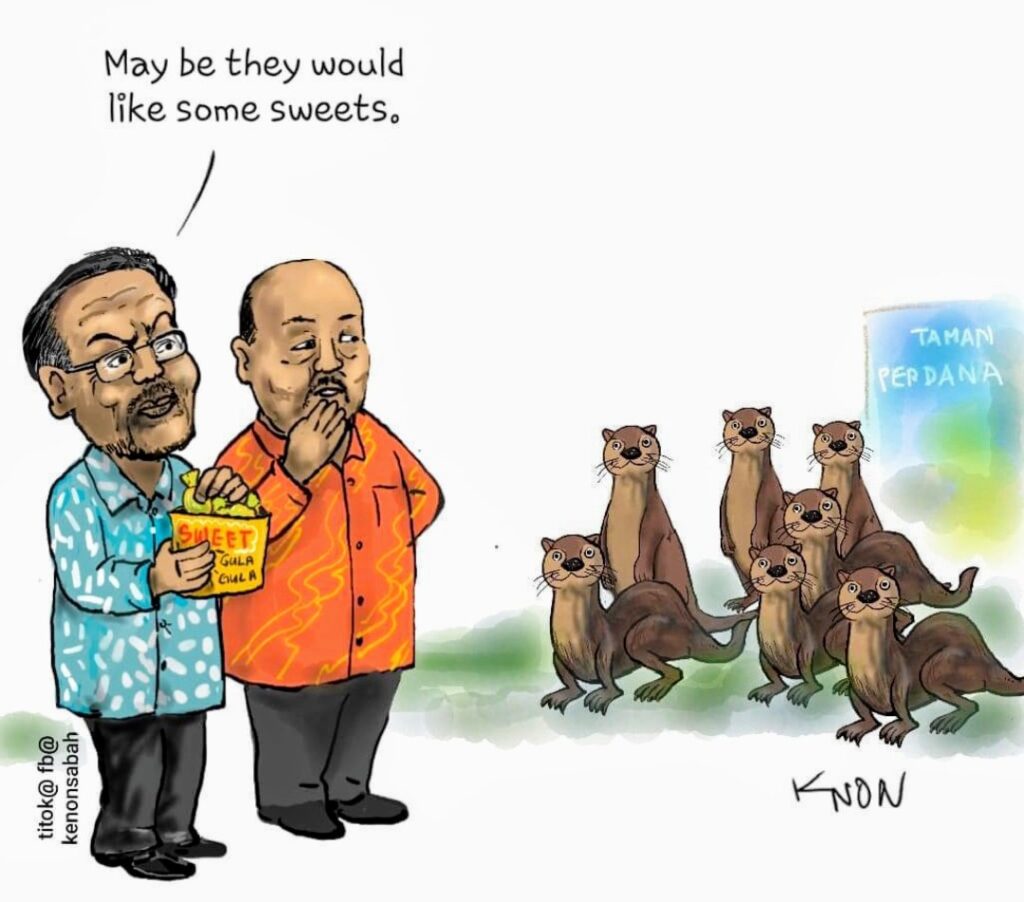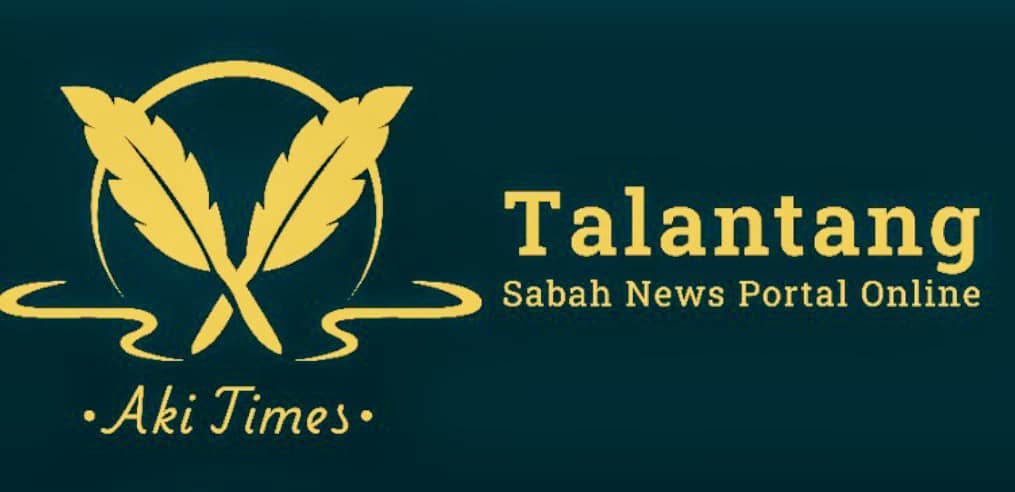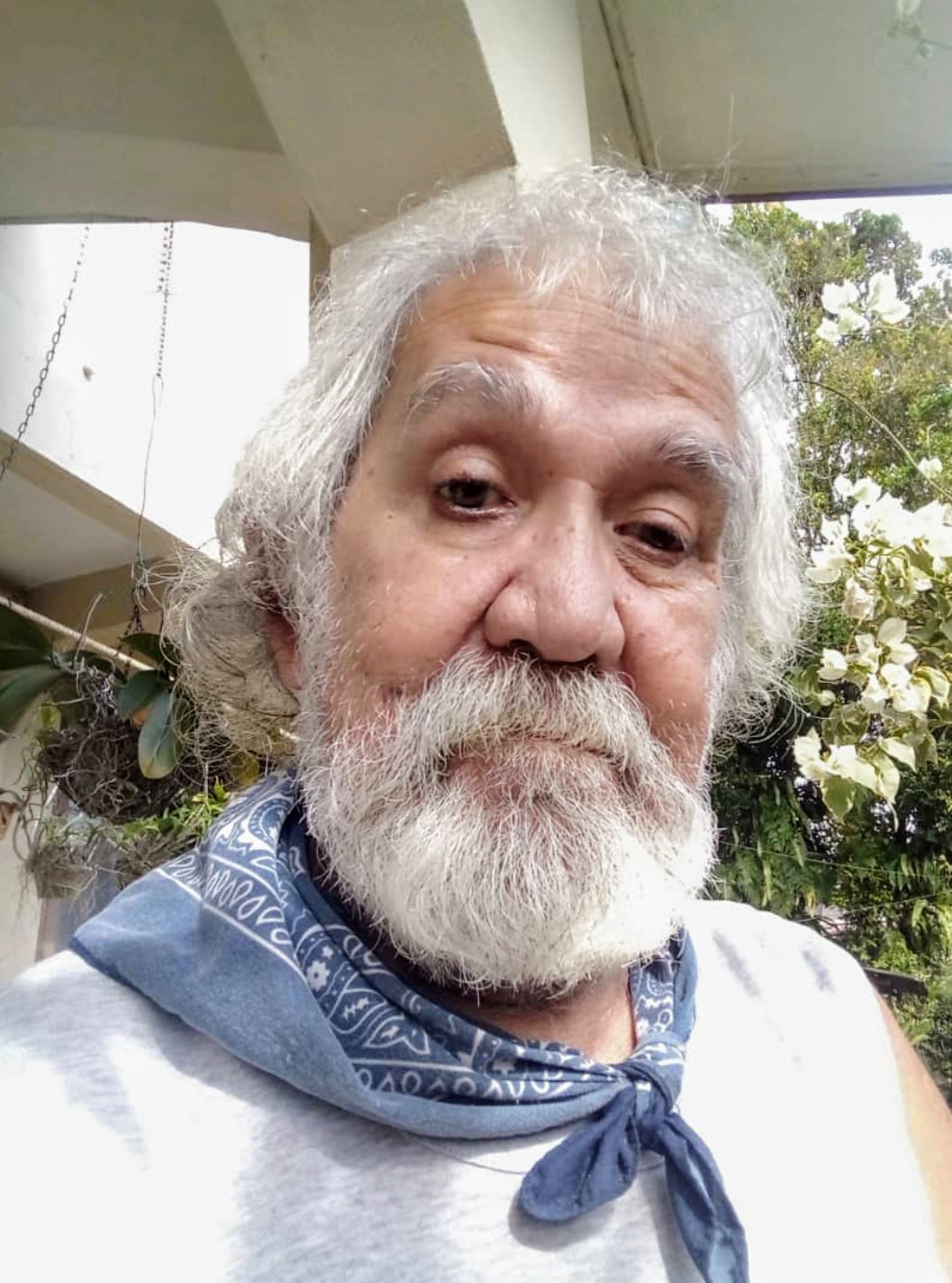By Philip Golingai
Columnists
(This article has appeared in The Star, republished here with permission from the writer.)

A work by Sabahan cartoonist Knon has been going viral in the lead-up to Malaysia Day tomorrow.
It has been shared in my chat groups and on my social media platforms by friends and politicians from my home state of Sabah.
The cartoon shows a man resembling Prime Minister Datuk Seri Anwar Ibrahim holding a packet marked “sweets, gula-gula”, and another man who looks like Sabah Chief Minister Datuk Seri Hajiji Noor facing down a bevy of otters. The speech balloon says, “Maybe they would like some sweets.”
To understand the cartoon, we need a bit of context.
On Wednesday, PMX – as Anwar is known as because he’s the 10th prime minister – flew into my territory (that’s what Sabah is called now after its and Sarawak’s equal partner status was restored). The next day, he, Hajiji, and Sarawak Premier Tan Sri Abang Johari Openg attended a Malaysia Agreement 1963 (MA63) Implementation Action Council meeting in Kota Kinabalu.
On Wednesday, a bevy of otters attacked a jogger at Perdana Park in Tanjung Aru, near Kota Kinabalu. Mariasella Harun, a 40-year-old housewife, sustained injuries on her arms, legs, and head.
What does this incident have to do with the viral cartoon? Perhaps the connection lies in the fact that PMX announced that he has agreed to double the interim payment of RM300mil to Sabah and Sarawak following discussions with the two territories’ leaders. After the MA63 Implementation Action Council meeting, Deputy Prime Minister Datuk Seri Fadillah Yusof said Sabah and Sarawak will each get RM600mil starting in 2025.
The interim payment was agreed upon during negotiations on the formula to pay the 40% net revenue owed by the Federal Government to Sabah.
Sabahans cynically expected the amount to be bigger, as they think the Federal Government owes them billions, not millions. To them, the RM600mil interim payment is just gula-gula (sweets).
Sabahans and Sarawakians are pushing for more than just gula-gula from the Federal Government.
The Bornean territories want more autonomy, as guaranteed under MA63. This historic international treaty, signed on Sept 16, 1963, laid the foundation for Malaysia’s creation. It set the terms under which Malaya, Sabah, Sarawak, and Singapore formed this country (Singapore left two years later, of course).
MA63 recognises Sabah and Sarawak as equal partners with Malaya, what is now Peninsular Malaysia. However, over the years, this understanding was diluted if not outright ignored. But in the past years, the push to be treated like equal partners has become stronger and louder in the two territories, especially Sarawak.
Politically, Sarawak is more independent of Putrajaya’s grip than Sabah. Gabungan Parti Sarawak (GPS) rules Sarawak with a solid majority. It has 23 MPs, who are crucial for Anwar’s unity government.
Sabah, however, is politically fragmented. Although Gabungan Rakyat Sabah (GRS) is the backbone of the Sabah government, it is not a dominant force. For example, it only has six MPs out of the 25 from Sabah.
If there were a Borneo Bloc – which would have 31 MPs from Sarawak, 25 from Sabah, and one from Labuan – it would comprise 57 MPs. That’s 25% of the 222 MPs in the Dewan Rakyat. However, the territories, especially Sabah, may not be able to deliver the numbers.
Politically, Sabah is divided.
Let’s go through its MPs and which parties they come from: Barisan Nasional has seven (Umno six, and PBRS one), GRS six (four from GRS, one each from PBS and Sabah Star), Pakatan Harapan five (Upko two, DAP two, and PKR one), Parti Warisan three, Parti KDM one, Bersatu one, and there are two Independents.
Unlike Sarawak’s GPS coalition with its solid 23 MPs, Sabah’s GRS only has six MPs. Without the numbers, it can’t push very hard for Sabah’s rights.
Politicians in the know are watching the Putrajaya and Kuching relationship, especially over oil rights. Datuk Idris Buang, information chief of Parti Pesaka Bumiputera Bersatu (PBB) – the backbone of Sarawak’s GPS – has cautioned that if PETRONAS challenges Sarawak’s authority over its natural resources in court, there will be negative repercussions for Malaysia’s economy as a whole.
Idris was commenting on media reports that PETRONAS is considering legal action against the Sarawak government, which is regrettable, he said.
“If this course is pursued, I feel that it would not augur well for the whole of Malaysia, both in the short and long-run economically. And if certain irresponsible quarters take advantage of the situation, it may cause unnecessary strain on the federal and state relationship, or even political rifts to some extent,” said Idris, who is also the State Legislative Assembly Deputy Speaker.
It is a potential fight to watch as it could “cause unnecessary strain” on Anwar’s unity government.
Another potential game to watch is whether Putrajaya will do what Barisan Nasional used to do to Sabah: Take control of the state by imposing a chief minister from a national party. Currently, the Chief Minister is from Parti Gagasan Rakyat Sabah, a local party that is the backbone of GRS.
What is at stake is the creation of a Borneo Bloc and the political neutralisation of one of the two territories in Bornean Malaysia.
It is clear that Sarawak wants more gula-gula from the Federal Government, which it says is its right. Whereas, as some interpret Knon’s cartoon, some Sabah leaders are just happy with gula-gula.
Editor: The views expressed are those of the writer and do not necessarily reflect those of talantang.com





